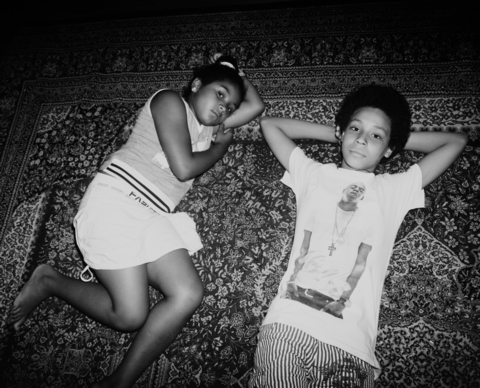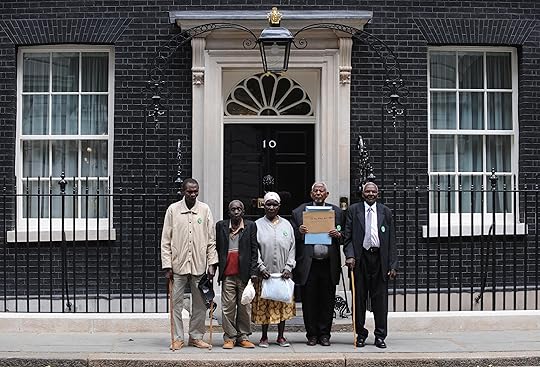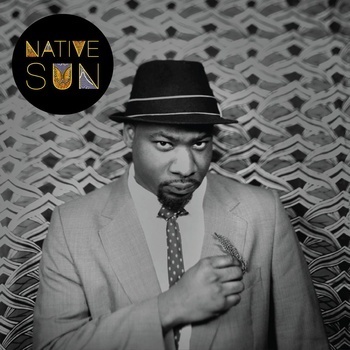Sean Jacobs's Blog, page 661
April 8, 2011
"Your dad washes elephants, your mother's a whore"
Tottenham Hotspur fans, reacting in disbelieve to how their team gets annihilated by Jose Mourinho's Real Madrid in the first leg of the teams' UEFA Champions League semi-final match, pull the race card:
Tottenham are unlikely to face any sanction from Uefa regarding the chants directed at [Emmanuel] Adebayor during the match in Spain. The visiting fans directed the same chants – "Your dad washes elephants, your mother's a whore" – at Adebayor when he was playing for their north London rivals, Arsenal, for more than three seasons. Tottenham admitted that the chants were offensive but denied they were racist.
But Uefa confirmed that there was "nothing in the [match] delegate's report" that would initiate an investigation into the abuse, so unless the governing body received notification of an offence from stadium security or the police, Spurs will not be charged. Regarding the chant, a Tottenham spokesperson said: "[It] has been previously discussed with the Crown Prosecution Service, who do not consider it racist."








April 7, 2011
Music Break
Brussels rapper Brams aka L'Insatiable (born in Cameroon) has been working on some promising collaborations lately. This one, 'Stop Look & Listen', with wandering hip-hop artist Juba Zaki (hailing from Crown Heights, Brooklyn) being a case in point.








Afro-Russians
Photographer Liz Johnson-Artur's images illustrates a piece by Sarah Bentley in the latest issue of Nigerian magazine, ARISE, on Russian nationals of mixed Russian and African descent. Those profiled in the piece mostly know each from the 'black-Russian-Ukranian-Belorussian-Kazakh' page on Kontakt (Russia's version of Facebook). The community numbers between 40,000-70,000. The article notes, according to Russian SOVA Center for Information and Analysis, that a total of 14 people were victims of racist and neo-Nazi attacks in January 2011, three of whom died.
Here.








Images of the Egyptian Revolution
A special edition of Sowar Magazine is dedicated to pictures of the 2011 Egyptian Revolution which occurred between January 25, 2011 and February 11, 2011 and led to the resignation of President Hosni Mubarak. The images are in chronological order.
No, there's no Twitter and Facebook anywhere in the photographs. Technology may have been an aid, but that doesn't mean that people's actions actions are overshadowed by a useful tool – one might as well call it the "shoe" revolution, because people used their shoes to walk to Tahrir Square. These images of families with babies, empassioned youth and hopeful grandmothers, a disabled man sharing a chat and a cigarette with a soldier, hands porting weapons, teargas canisters, and slogans show that this is clearly the People's Revolution.








Mau Mau and Toothfish
In the same week that the US attorney general, Eric Holder, announced that "key suspects" detained at Guantánamo would be tried through controversial military commissions, rather than in federal court—blaming members of Congress for intervening and imposing restrictions that blocked the administration from bringing any Guantánamo detainees to trial in the US—Great Britain, another champion enforcer of human rights across the globe, will be "invoking an obscure legal principle to dismiss claims of torture and rape by the British colonial administration in Kenya." The obscure law, on which the Foreign Office is set to argue its non-liability, is based "on a rule derived from a case over licences to fish for Patagonian toothfish in the South Georgia and South Sandwich islands, British overseas territories," which states that responsibility for acts committed by a colonial government pass to the new, successor government at independence. You read that correctly.
Pity the British Colonial administration didn't think of transporting detainees to a legal black hole like Guantánamo. But perhaps they believed their colonies were black holes, in which those highly-touted tea-and-biscuits civilised British values should not apply.
Four "elderly Kenyans," who survived the notorious detention camps, brought a case against the British Government last year, "alleging that they suffered serious physical and sexual abuse at the hands of the British during the Kenyan "emergency" of 1952 to 1960." This week, "Highly embarrassing colonial-era files," hitherto withheld by the from the Kenyan government, "detailing the British army's repressive tactics against Mau Mau insurgents in Kenya during the 1950s will be revealed" in this landmark compensation case. It could lead to the release of documents relating to other colonies once controlled by the UK. Daniel Leader, a lawyer at Leigh Day, representing the four current claimants, said:
"The nature and scale of this abuse was unparalleled in modern British colonial history. The claimants are among the poorest in Kenyan society, and they still live with injuries from that period."
Leader also illustrates that "the use of systematic violence was authorised at the highest level in London." His law firm has "the documents to prove that."
This case could open the way for up to 12,000 Kenyans who were similarly detained and abused to seek redress, but the Foreign Office claims that it "should not be allowed to proceed…because of the law of state succession," and because the Kenyan government is responsible for the abuses that actually took place under the British colonial administration (pre-independence), despite the fact that a Kenyan government did not, then, exist:
The government argues it is "not liable for the acts and omissions of the Kenyan colonial administration", claiming the Kenyan government was now responsible for events that took place while Kenya was a British colony.
The FCO letter also alludes the fact that colonial administrations transferred files containing "sensitive" information to the UK shortly before independence, and "select documents that "were not appropriate to hand on to the successor government" were routinely "withdraw[n] or destroy[ed]…prior to independence." The letter also spells out other fears: should these records be retuned, there is the "danger that we should find ourselves under constant pressure to make good other gaps … in the record of the Kenya government."
Whilst "a cross-party group of MPs will this week publish an open letter demanding an apology and the creation of a welfare fund to help the alleged victims through old age," I doubt that castration (for "supplying a cow to the Mau Mau"), forcing bottles filled with hot water into female detainees' vaginas, beatings so brutal that "sperms were coming out of my penis like a stream," arbitrary killings, routine sexual abuse, forced labour, starvation and regular violence from camp guards should be let go without a "real" legal process.
The taint of torture from the recent past only highlights how Britain has yet to reckon with abuses in the locations it exercises power—abuses repeated in the nation's participation in its more recent actions during the War on Terror—particularly in the secret "renditions" and torture of so-called "terror suspects" in new detention camps as notorious and horrific as those in which Kenyans were held.
At a time when the Arab Spring is being heralded around the world, the United States and Britain are busy using legal language to blanket their actions, rather than using their famous judicial systems to protect the bodies and psyches of those who have been simple instruments of colonial conquests.–Neelika Jayawardane








April 6, 2011
Music Break
The Elephant in the Room
Will the "global" furore over GoDaddy CEO's canned elephant hunt really lead to a boycott of his company?
Last week when Bob Parsons, CEO of the Internet domain company boasted of his latest kill, and posted pictures and video of himself posing with a gun and a prone elephant on his Twitter site, outrage ensued. Parsons claims that the elephants he shot, on his yearly visits to Zimbabwe, are rogues who destroy crops. (The media, probably tired of Libya's inconclusive civil war and under pressure to focus on something else other than Donald Trump's bigotry and advertising strategy, made this the big story by week end last week.)
As Parsons reminded journalists, he donates the meat to starving villagers who are so poor that they vie for the "treasured" plastic water bottles (which he takes with him to avoid "Montezuma's revenge, as he clarifies) from which he drinks. They also like the cheap GoDaddy baseball hats he hands out.
People are especially upset with the "villagers" who are seen skinning and butchering the "precious creatures who are trying to live out their lives." The coverage—conducted at the usual high-pitched level for which Nancy Grace is known—is annoying.
Unpacking all the nonsense would take days. Especially because the two other elephants vying for space in the room are not even mentioned:
a) Canned hunting: GoDaddy was accompanied by a "team"–basically professional hunters –but none of the coverage is about that.
b) The political context: no mention is made of Zimbabwe as an autocratic state, and nothing is said about the corruption involved in the trade of ivory.
In the CNN interview, Parsons is not shy about saying that he'll return to Zimbabwe to hunt elephant in the coming years, but is careful, beforehand, to highlight his role as saviour.
"I go there every year…They are subsistence farmers…there's no food stamps, there's no welfare…one of the problems they have to deal with are elephants—problem elephants—destroying their fields. They try dealing with it using fire, beating drums, and cracking whips, hollering, and the elephants ignore them. So what it takes is…a guy like me, and there's just a few of us to go into the field at night when the herd is there, isolate a bull, shoot the bull, the rest leave immediately. They don't return, so the crops are safe. And then the people have a very valuable source of protein."
How did Parsons learn about this problem? Not by going with a planned hunting party, he assures the interviewer; and no fees are involved in taking care of "problem elephants." But he does "pay [his] own expenses," including those associated with "guides, skinners, trackers, government agents." Parsons learned about the "problem" elephants "by going there, talking to the villagers." The shame here, according to Parsons, is that the villagers' voices are not being heard. "If you talk to them, they would say, "Please come back," and "Please do this again."
However, others were involved in Parson's yearly success. The African Safari Company is one of the outfits that helped can this "rogue elephant" for the pot and for the mantelpiece. These self-pronounced 'proud Zimbabweans' (apparently not all whites have fled Zim—this lot looks like they hit the jackpot) advertise "Big Game Hunting in unfenced Africa" as an adventure that offers "sheer joy…and the fun of being in a situation where ones' wits and woodsmanship are put to the test daily." Just how much of the paying visitor's wits and wodsmanship are put to the test as they hunt lion, crocodile, buffalo and plainsgame is hard to tell. (But the company's punctuation, mechanical and grammatical skills sure look like they've been put to the test, and not passed.)
Ian Gloss, owner of the company, assures us that he "advocates high moral principals in such a way that you will be ensured of extremely fair chase, respectful hunting; whereby concentration is directed towards the appreciation of the principles of hunting. He believes it is more about honest hunting than simply trophy size and quantity." Though the image shows a portly man who looks like he's had his fair share of liquor and braaivleis, the PR tells us that Ian continues to conduct "dangerous game hunting safaris." We also learn that Ian, along with "Steven his trusty Tracker" (Steven is not given a surname, a page, or a photo on the "Staff Profiles") has "extensive elephant hunting experience," which requires that the hunter is in "good physical condition and stamina" for the possible 20 kilometre walks necessary to track the animal.
Of course Parsons went on a canned hunt—so did Big Papa Hemingway. It's just our romance that the Big Papas of the west have been solitary, skilled hunters who knew not only their prey and the landscape, but themselves so well that other company was unnecessary. This GoDaddy is just a reproduction of that same fairytale. And what's the allure of the solitary hunt? The desire to dance in the face of terror and death: in "killing" the thing that threatens the hunter's life, the hunter ceremonially displays victory over death.
But the White Hunters of the 20th Century wanted security, comfort, and safety—so the entourage always accompanied them, ensuring victory over death, without ever really needing to learn the skills necessary for such a feat of facing mortality, nor partaking in the ceremonial aspects of belonging to place, people, and animal world—thusly recognising the sacrifice necessary (for the animal) for us to do this game with death. The meat is obviously always "donated" to the band, because the hunters do not eat the whole animal. However, the classic White Hunter is there for the death-trophy/scalp (skin, tusks, head) as proof of power and virility - without having embarked on the journey necessary for developing the skills. Such a 'corrupted' hunt is not about providing for the mortal and immortal body, but for the egotistical body; the meat has little to do with this sort of hunter's quest.
GoDaddy must now invent the "humanitarian reason" soundbite, because his game looks bad, even if the effectiveness of shooting elephants (even via organised culling) to 'protect' villagers' farmland has always been questioned by those who have actually been seeking solutions on the ground. GoDaddy's yearly slaughter of a "problem" elephant or two probably does nothing to "protect" the sorghum crop.
Why are so many Americans upset? Parsons says that the "reaction is not as negative" though most Americans "quite often want to put our heads in the sand…and have a Pollyanna outlook on the world." The real problem, he says, is "this politically correct cadre that is a minority that is very vocal…who move as a 'tsunami'" while "the silent majority" understands that people need to eat and have their crops protected—by "lone" white hunters, on their yearly canned hunts. Parsons will be returning to highlight the poverty of Zimbabweans, some of whom "walked 25 miles to get to that elephant," and provide them a meal next year. "Unfenced Africa" (read "lawless" or "place where I can get away with doing things I'll be prosecuted for elsewhere") allows him the opportunity to live without self-reflection or the pesky necessity of understanding why certain "boundaries" (self-maintained or state-imposed) are a significant part of ethical conduct.
In any case, companies are already stampeding outta there:
20% from each transfer was donated.








A history of the world?
This is an interesting little video, presented as a history of the world according to Wikipedia. They're right it is a history, not 'the history' Some say it shows how Eurocentric Wikipedia is. Yes, but that in turn just shows all sorts of other things: who has internet access and time to write Wikipedia articles, the Eurocentrism/ West-centrism of much of the history we learn, and so on and so on. Whatever the conclusions, it's a great exercise in data visualization.–Brett Davidson








April 5, 2011
'Dear Africa'
Coming to America
Boima Tucker
It would be difficult for me to write this post without revealing my excitement at discovering the talents of Sierra-Leonean, American, Atlantian, New Yorker filmmaker Nikyatu Jusu. After seeing her work, it almost seems like films that I had been wishing into existence my entire life have suddenly materialized. I selfishly (reppin' Salone) cheer Nikyatu on as her emergence in the public spotlight has come as an answer for many unrealized personal visions.
I had first heard about Nikyatu when her film "African Booty Scratcher" was screened on HBO a couple of years ago. I didn't get to see the film then, but it is now available to watch online. Shot in New York, "African Booty Scratcher" recounts the touching tale of the cultural struggle between an American raised teenager and her African mother, and covers the conflicts within generations, cultures, and gender in a short uncomplicated narrative.
While immigrant narratives in the United States tend to center around the issues of the Latino communities mostly, other communities are often left out of the conversation. The only representation of the African immigrant experience in the U.S. I can remember growing up was in (yes) Coming to America. It's a heartening sign that new voices are emerging that will provide reference points for young people going through similar struggles around the world, from the U.S. to places like Australia and Germany.
Nikyatu's New York University thesis film, "Say Grace Before Drowning" (trailer above), continues her exploration of identity in the context of contemporary global migration. This time, she takes the story into darker and more mature territory. The film is about the struggle of a war traumatized mother to adapt to a suburban American lifestyle. Jusu again uses a simple narrative to illustrate issues that reverberate across multiple worlds and experiences, and shows how problems that originate in another part of the world can surface in even the most seemingly benign locations. What we realize by the end is that no place is neutral.
While motivated by wanting to create positive portrayals of black women on the screen, Nikyatu's stories will resonate with anyone who sits firmly between multiple worlds. And maybe what's most important is through her artistic work, Jusu and other contemporary artists working from an underrepresented perspective are able to create a space for new realities in a world that would rather erase our identities than confront the inequalities infused within our contemporary global society.
* Ms. Jusu is currently writing two feature length projects, one of which will be a continuation of her short "Black Swan Theory." Say Grace Before Drowning is currently running on HBO.








Sean Jacobs's Blog
- Sean Jacobs's profile
- 4 followers



























